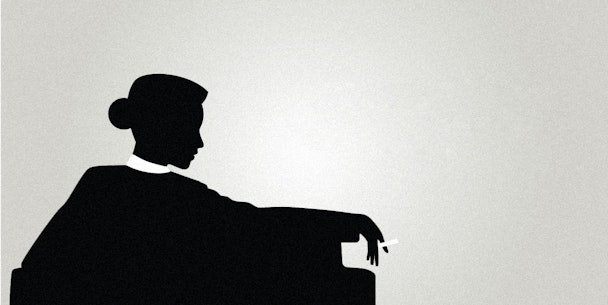It took a decade, but International Women's Day has become a significant event in China
March was the month for women.

Behind the celebrative vibe of Women’s Day represents the golden opportunity for marketers to ‘talk to her heart-to-heart’.
China is probably the only place in the world that celebrates International Women’s Day (March 8) to the extent that all female staff are officially entitled to a half-day off.
10 years ago, we referred Women’s Day by derogatory term ‘Three-Eight Day’ – which is literally translated from the date March 8, connoting goofy and ditzy women. Thanks to the collective effort of brands and marketers, in recent years people go to the other extreme, and proudly nick-name this day as ‘Queen’s Day’, ‘Girl Power Day’, ‘Master Day’ and ‘Goddess Day’.
Behind the celebrative vibe of Women’s Day represents the golden opportunity for marketers to ‘talk to her heart-to-heart’. Traditional wisdom has it that marketing to female consumers is never about selling products but painting dreams. Before reaching into the her purse, brands first need to win her heart. By showing her that you know, you understand, you empathize, you compassionate, you share, you care, you stand up and speak for her. From ‘talking to her’ to ‘talking with her’. Smart brands leverage March. Smarter brands would go beyond March and do it on year-round basis.
If touching heart is the end, what’s the best mean? The professionals would offer many ‘tips’ and ‘advices’. The general consensus nowadays is to leverage the societal tension and pain points. Find a way to back her up against the social injustice, unfair judgement and discrimination. Give her a pat on the back and ‘empower’ her to purse the higher purpose, and embrace the politically correct, universal value. Liberation is the forever theme, weaved with empathy and honesty, substance and depth.
So, we started seeing highbrow work like the SKII ‘Marriage Market Takeover’ emerging in China back to two years ago.
It works. Although the noise it aroused was not considered ‘phenomenal’ among the general public, it reassured the marketers that Chinese women were getting more ready to take the conversation of greater depth with brands.
It’s not surprising to see more works of this kind from different brands flood in. Just do some random picks from the numerous ‘March 8’ campaigns this year, it’s not hard to find the brands’ attempts of starting ‘higher level’ conversations with Chinese women. Skincare and beauty brands, in particular, have been trying hard to find an angle to convince people that despite their products are meant to perfect your outer beauty, at its heart they are actually championing genuine inner beauty.
A local skincare brand Chando decided to encourage women to go up against the gender discrimination at workplace by putting men in a social experiment titled ‘an interview that men will never get pass’.
Dove, the pioneer in celebrating true beauty of every women globally since 2004, continues to celebrate diversity of beauty in its latest China campaign ‘More than one type of skin beauty’.
In every senses, it’s a good sign to see more brands in China advocating the positive values to make the world a better place. It means progress, civilization, intellectual and sophistication.
But is this the only way? When it comes to advocating ‘values’, who are qualified to judge what are the ‘good values’ and what not? The marketers? The consumers? Or the award judges? When we said we are to embrace diversity, how open-minded we are to accept those values that may not seem as noble as we want it to be? When we said ‘honesty makes friends’, how honest we can go so to stay away from hypocrisy in disguise of noble belief?
All these questions dawned on my mind when I saw this recent work from a local brand Ycloset, an online clothes sharing platform where users pays a monthly subscription fee to rent big label clothes and accessories.
It features how an fresh grad girl ‘dresses her way up’ on the career ladder by taking the unfair advantage of renting big labels designer clothes, in a comical, over-the-top manner. Like it or not, it tapped on the insight that strike the chords, spot on. It’s honest. Brutally honest. It spread like wild fire online the first day it was launched. It stirred up huge talk-ability and the response was polarized. The lovers and haters debated fiercely on social media. You can imagine how the haters would criticise the work – it equates the shallow appearance with success, that’s not a good value to promote.
To me the argument of the lovers are more worth noting. “You are what you wear. It’s the age-old wisdom. You dress well. You look good. You feel confident and empowered. What’s wrong with this? Only hypocrites will concern about political correctness, stand on the moral high ground pointing fingers at people for thinking and doing things they themselves are doing everyday anyway….”
I’m not going to play the judge here, although I have my own preference and POV, like many of you. What I want to call out is that the beauty of humanity often lies in its diversity. There’s no such thing as absolute correctness when it comes to values and cultures – be it mainstream or niche. What brands need to do is matching what it stands for with what the audience resonate. Sometimes simply a powerful fact works wonder.
Like how deeply this clip touched me by the time I finished writing this piece.
Carol Lam is president and chief creative officer for Greater China at Leo Burnett.
Content by The Drum Network member:

Leo Burnett China
Find out more
